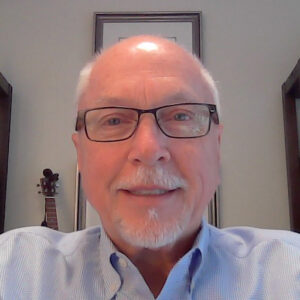You and your congregation won’t have to make any choice. Just stay with us.
Bishop John Hopkins, Interim Bishop of the Northern Illinois Annual Conference, indicates that the most frequent questions he receives have to do with whether congregations or clergy will have to make a choice about their denominational home when the General Conference approves a plan of separation allowing traditionalists and progressive to part ways. Maybe you’ve had that question in your mind, too.
The next United Methodist General Conference (currently scheduled for August 29-September 6, 2022) is widely anticipated to approve a plan for denominational separation.
For many of our Bishops and other annual conference leaders the primary perspective seems to be that any plan will allow for the hard-shell conservatives to leave so that once the wave of malcontents departs, all the rest will settle into one big happy United Methodist family. The message to local congregations is simple, “United Methodism is a big tent; there is plenty of room for traditionalist congregations and clergy. Don’t worry about it. Trust us. You’ll be fine.”
That’s a fond wish, perhaps, but a long way from the reality congregations will experience in the post-separation Northern Illinois Conference.
Dr. Jack Jackson, III, Professor at United Methodist-related Claremont Seminary in California, wrote after the release of the Protocol for Reconciliation and Grace Through Separation, that both progressives and traditionalists should support the legislative initiative of the Protocol. You should note that Dr. Jackson is not aligned with any of the traditionalist or progressive advocacy groups in the UMC. He has written and published widely. His comments describing the United Methodist Church after separation seem particularly pertinent. Here’s a portion of an article written by Dr. Jackson in early 2020:
Progressives should embrace the protocol for a number of reasons.
First and foremost, it delivers on progressive’s core demand, namely that the UM Church will ordain and marry LGBTQI+ persons.
Some progressives complain that inclusion both in the U.S. and around the world will only be optional. Churches in the U.S. “may” opt to host gay weddings and clergy “may” choose to officiate, and annual conferences “may” ordain non-heterosexual persons.
But progressives should rest assured that the Protocol will profoundly shift the denomination’s theological emphasis, at least in the United States, towards a progressive vision.
For instance, while only a small percentage of traditionalists may leave at first (some traditional clergy and laity in their 50’s and older will choose to remain in the UM Church for relational and pragmatic reasons), traditionalist clergy and laity younger than 50 will begin to leave immediately. Even more important to progressives, current and future traditionalist seminarians and young people will leave in mass as they recognize that their vision of human sexuality is increasingly rejected at UM seminaries, Annual Conference Boards of Ordained Ministries, and post separation UMC (PSUMC) congregations.
The result of this departure of laity and clergy in the U.S. means that by the 2028 General Conference, if not 2024, the church will be thoroughly progressive and change its language on inclusion from “may” to “shall.” Churches will be forced to welcome gay weddings and clergy will be required to officiate gay weddings.
The protocol will result in a thoroughly progressive PSUMC. The church will not be a big tent and there will be no room for traditionalists, and little room for centrists by 2028.
( For the full commentary by Dr. Jack Jackson, click here )
The picture of the future post-separation United Methodist Church described by Dr. Jackson may warm the heart of progressives, but it should surely give pause to those who are not on board the Progressive Express of the Northern Illinois Annual Conference.
The timing of the General Conference has been postponed due to the pandemic, of course, but the clock is and will be ticking for decisions to be made. The protocol as currently proposed allows for a four-year period during which a congregation can choose which denomination will be its home. Once that four-year window closes, however, there is no possibility of leaving the post-separation United Methodist Church without major financial penalties.
The hierarchical, top-down decision-making structure of the post-separation United Methodist Church, the unilateral authority of Bishops over appointment of clergy and the closing of churches, and the departure of the traditional voices that have moderated the impact of the progressive and liberationist advocacy groups in United Methodism in the past guarantees a thoroughly progressive denomination which, as Dr. Jackson observes, will have no room for traditionalists.
An Encouraging Word:
This all might be very discouraging, perhaps even alarming. But the encouraging word is that there is an alternative. The Global Methodist Church is already preparing to launch. It will be theologically conservative, missionally focused, global, vibrant, and innovative. If you would like to know more about the Global Methodist Church please get in touch for a personal conversation. You might also want to attend our annual business meeting in person on November 14th. Yes, it will be a boring business meeting, but it will be limited to 90 minutes. And you will get good information and perhaps make some important connections.
You’re Invited !
ANNUAL BUSINESS MEETING OF THE NORTHERN ILLINOIS WESLEYAN COVENANT ASSOCIATION
SUNDAY, NOVEMBER 14, 2021
3:00 – 4:30 pm
St. Charles Public Library / Huntley Community Room
1 South 6th Ave.
St. Charles, Illinois
Rev. Dr. Scott Field
NIC Clergy (Ret.)

